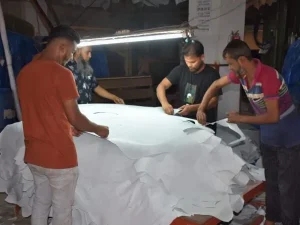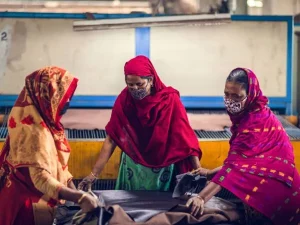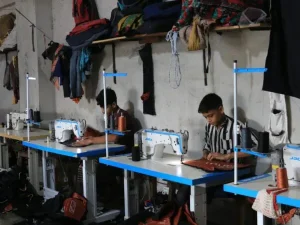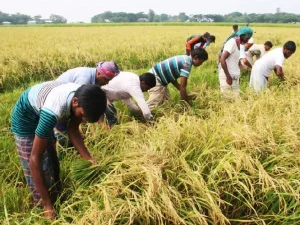Reducing Prevalence of Forced Labour in Informal RMG Factories in Bangladesh by Promoting Sustainable Livelihood Opportunities for People through Alternative Learning Pathways
The COVID-19 pandemic has affected Bangladesh largely and caused huge economic distress to the livelihood of people, especially workers of the informal sectors. In the case of ready-made garment sector workers, the effect is devastating. According to Dr. Rubana Huq, president of Bangladesh Garment Manufacturers and Exporters Association (BGMEA), $3.18 billion worth of orders were canceled from 1,150 factories from mid-March till April 29, 2020. This led to layoffs and seizure of full wages of many workers. The latest report of Penn State University’s Global Workers Rights and Workers Rights Consortium says more than one million Bangladeshi garment workers have already been fired or furloughed or suspended from work. While the formal RMG sector is struggling hard to cope with the crisis situation, the struggle is multi-times harder for the informal RMG workers. These employers are also undergoing economic recession since their productions were halted during the lockdown period and also missed the production during the two major festivities of Pahela Baishakh and Eid-ul-Fitr. The informal RMG workers need humanitarian support as well as protective equipment to keep them secure so that they can survive during this ongoing COVID crisis.
BLF is implementing this project in Keraniganj supported by GFEMS. As per the categorisation of the Government of Bangladesh, Keranigani was under the red zone. The overall objective of the project is to reduce the vulnerability of COVID-affected workers through the provision of immediate relief responses and dissemination of awareness messages on COVID-19 prevention measures. The target beneficiaries are 750 informal RMG workers (priority was given to those workers who have been laid off from jobs during this ongoing COVID-19 crisis) and 40 factory owners.
Related posts

Promoting Decent Work and Acceptable Working Conditions in the Tannery Sector in Bangladesh
Read More »


